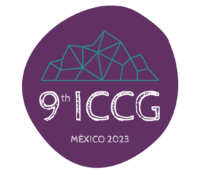[ENG] In this workshop, we invite feminists from rural and urban spaces to come together to collectively explore how feminist politics and praxis (from below and to the left) inform research in defense of the territories. We specifically aim to share stories and experiences about working as feminist researchers with and within social movements in the spheres of agroecologies, food sovereignty and other ways of opposing extractivist agriculture. As feminist researchers we are confronted with patriarchy in multiple ways and spaces: from the institutions we work in to the colonial capitalist farm and food systems we oppose, from the social movements we work with to our own thinking and doing. To transgress entrenched patriarchy, feminist research develops strategies including the practices of situating knowledge, creating non-hierarchical research collaborations, or putting women and people of other marginalized genders at the center of the research. Introducing such feminist approaches can create tension and discomfort or, in contrast, be provocative, inspiring and transformational. We will use our bodies, art, small group work and mutual exchange to share and unpack lived experiences, hopes and dreams for just/caring foodways. We will work with guiding questions such as: What does it mean to you to do feminist research? How do you use and relate to feminist epistemologies and approaches to inform your practice? How can these approaches be used to instigate deeper change and contribute to overturning status quo ways of working and interacting with others? What challenges do you encounter? The goal is to learn from each other and co-create tools for tackling issues of power, privilege and intersecting oppressions through research. [ESP] En este taller, invitamos a feministas de espacios rurales y urbanos a reunirse para explorar colectivamente cómo la política y la praxis feministas (desde abajo y a la izquierda) contribuyen a la investigación en defensa de los territorios. Nuestro objetivo específico es compartir historias y experiencias sobre el trabajo como investigadoras feministas con y dentro de los movimientos sociales en las esferas de las agroecologías, la soberanía alimentaria y otras formas de oponerse a la agricultura extractivista. Como investigadoras feministas nos enfrentamos al patriarcado en muchas formas de hacer y pensar: dentro de las instituciones en las que trabajamos, en los sistemas agrícolas y alimentarios capitalistas coloniales a los que nos oponemos, dentro de los movimientos sociales en los que participamos y dentro de nosotras mismas. Para transgredir este patriarcado arraigado, la investigación feminista desarrolla estrategias que incluyen las prácticas de situar el conocimiento, crear colaboraciones de investigación no jerárquicas o situar a las mujeres y a las personas de otros géneros marginados en el centro de la investigación. Introducir estos enfoques feministas puede crear tensiones, generar incomodidad o, por el contrario, ser provocadoras, inspiradoras y transformadoras. Utilizaremos nuestrxs cuerpxs, el arte, el trabajo en pequeños grupos y el intercambio mutuo para compartir y desentrañar experiencias vividas, esperanzas y sueños de una alimentación justa y solidaria. Trabajaremos con preguntas orientadoras como: en tu contexto, ¿Qué significa para ti hacer investigación feminista? ¿Cómo utilizas y te relacionas con epistemologías y enfoques feministas para informar la práctica? ¿Cómo se pueden utilizar estos enfoques para instigar un cambio más profundo y contribuir a cambiar el status quo de las formas de trabajar e interactuar con los y las demás? ¿Con qué retos te encuentras? El objetivo es aprender unxs de otrxs y crear conjuntamente herramientas para abordar cuestiones de poder, privilegio y opresiones cruzadas a través de la investigación.
